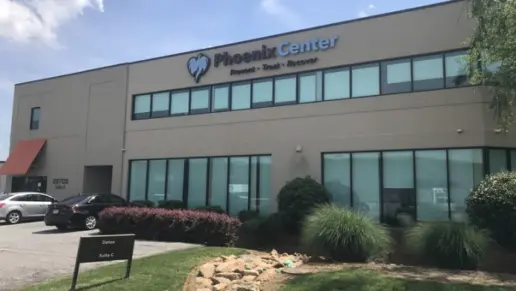Pharmacy always delays and confuses the meds they are supposed to give you. It takes over 24 hours for them to preauthorize a medication, and what happens when we need those meds urgently because we ran out of them? It is better to look for a different provider
About Oconee County – Mental Health
Oconee County provides mental health adult outpatient services for residents of Seneca, South Carolina. For more than 40 years, they've provided these programs in individual and group therapy settings to address mental health conditions and substance use disorders. Their array of services begins with an initial assessment that helps to form the foundation of your treatment program.
They offer crisis intervention services when needed, as well as psychiatric medical assessments and medication monitoring. Your substance use disorder treatment can include dual diagnosis support if you have a co-occurring mental health condition.
Co-occurring mental health conditions must be addressed simultaneously to reduce the risk of poor outcomes since mental health and substance use disorders can interact and exacerbate each other. Their programs also include peer support services, offering support from individuals who have walked this recovery journey before you, and family outreach programs to support your whole family. They have special programs available for veterans of the Armed Forces and if you’re eligible for care from the VA Health system, they’ll help assist in your transition to that program.
They can also provide referrals to other community resources and services to help promote your recovery and support sustainable sobriety. Your program can also include psychoeducation on wellness and recovery to help make better decisions during stressful situations. This helps maximize your functioning. Depending on your needs, you may also receive supportive housing, case management, and help with finding employment. They offer an intensive community treatment specialized team that addresses people with serious and persistent mental illnesses who need a deeper level of care.
The mobile crisis program is staffed by trained masters level clinicians who can help deescalate an immediate mental health crisis that may occur with a substance use disorder. They are accredited by the Commission for Accreditation of Rehabilitation Facilities (CARF) and publish an annual outcome analysis and plan for greater transparency. They work with several local insurance providers and will verify your insurance coverage before beginning treatment.
Latest Reviews
Rehab Score
Accepted Insurance
Other Forms of Payment
Medicaid is a state based program that helps lower-income individuals and families pay for healthcare. Medicaid covers addiction treatment so those enrolled can use their coverage to pay for rehab. When a program accepts Medicaid the client often pays very little or nothing out of their own pocket.
Private insurance refers to any kind of healthcare coverage that isn't from the state or federal government. This includes individual and family plans offered by an employer or purchased from the Insurance Marketplace. Every plan will have different requirements and out of pocket costs so be sure to get the full details before you start treatment.
Self-pay involves paying for treatment out of your own pocket. You can use savings or credit, get a personal loan, or receive help from family and friends to fund your treatment. If you don't have insurance or your insurance plan doesn't cover a specific program, self-pay can help ensure you still get the care you need.
Medicare is a federal program that provides health insurance for those 65 and older. It also serves people under 65 with chronic and disabling health challenges. To use Medicare for addiction treatment you need to find a program that accepts Medicare and is in network with your plan. Out of pocket costs and preauthorization requirements vary, so always check with your provider.
Addiction Treatments
Levels of Care
Treatments
Many of those suffering from addiction also suffer from mental or emotional illnesses like schizophrenia, bipolar disorder, depression, or anxiety disorders. Rehab and other substance abuse facilities treating those with a dual diagnosis or co-occurring disorder administer psychiatric treatment to address the person's mental health issue in addition to drug and alcohol rehabilitation.
Mental health rehabs focus on helping individuals recover from mental illnesses like bipolar disorder, clinical depression, anxiety disorders, schizophrenia, and more. Mental health professionals at these facilities are trained to understand and treat mental health issues, both in individual and group settings.
Programs


Clinical Services
Cognitive Behavioral Therapy (CBT) is a therapy modality that focuses on the relationship between one's thoughts, feelings, and behaviors. It is used to establish and allow for healthy responses to thoughts and feelings (instead of unhealthy responses, like using drugs or alcohol). CBT has been proven effective for recovering addicts of all kinds, and is used to strengthen a patient's own self-awareness and ability to self-regulate. CBT allows individuals to monitor their own emotional state, become more adept at communicating with others, and manage stress without needing to engage in substance abuse.
Whether a marriage or other committed relationship, an intimate partnership is one of the most important aspects of a person's life. Drug and alcohol addiction affects both members of a couple in deep and meaningful ways, as does rehab and recovery. Couples therapy and other couples-focused treatment programs are significant parts of exploring triggers of addiction, as well as learning how to build healthy patterns to support ongoing sobriety.
Research clearly demonstrates that recovery is far more successful and sustainable when loved ones like family members participate in rehab and substance abuse treatment. Genetic factors may be at play when it comes to drug and alcohol addiction, as well as mental health issues. Family dynamics often play a critical role in addiction triggers, and if properly educated, family members can be a strong source of support when it comes to rehabilitation.
Group therapy is any therapeutic work that happens in a group (not one-on-one). There are a number of different group therapy modalities, including support groups, experiential therapy, psycho-education, and more. Group therapy involves treatment as well as processing interaction between group members.
In individual therapy, a patient meets one-on-one with a trained psychologist or counselor. Therapy is a pivotal part of effective substance abuse treatment, as it often covers root causes of addiction, including challenges faced by the patient in their social, family, and work/school life.
Contact Information
115 Carter Park Drive
Seneca, SC 29678







